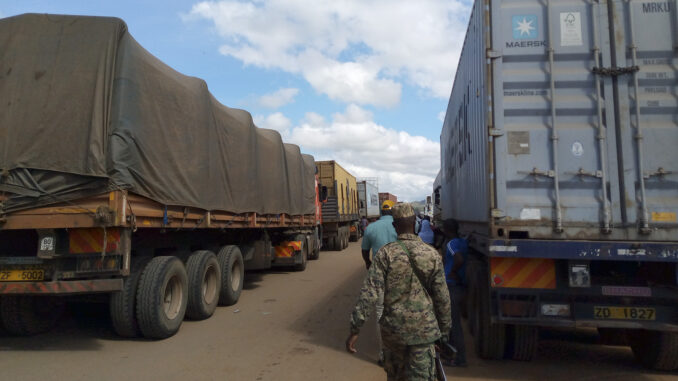
GULU, Uganda — “We were attacked by several armed men shortly after we passed the Nimule Hill on the way to Juba,” said 33-year-old Mohamed Ismail Dollis.
Dollis spoke to Zenger News from his bed at St. Luke’s Orthopedics and Trauma Hospital in Eldoret town, Kenya, where he’d been admitted with a bullet wound and a broken left hand.
“The gunmen descended on the road from the bushes, shot at us, and torched our trucks.”
Dollis, a Kenyan citizen, was part of a convoy of foreign truck drivers transporting goods to South Sudan’s capital, Juba, when they were ambushed by unknown gunmen on the evening of March 18, 2021, along the Nimule-Juba highway. It was his first-ever time to transport fuel to South Sudan, he said.
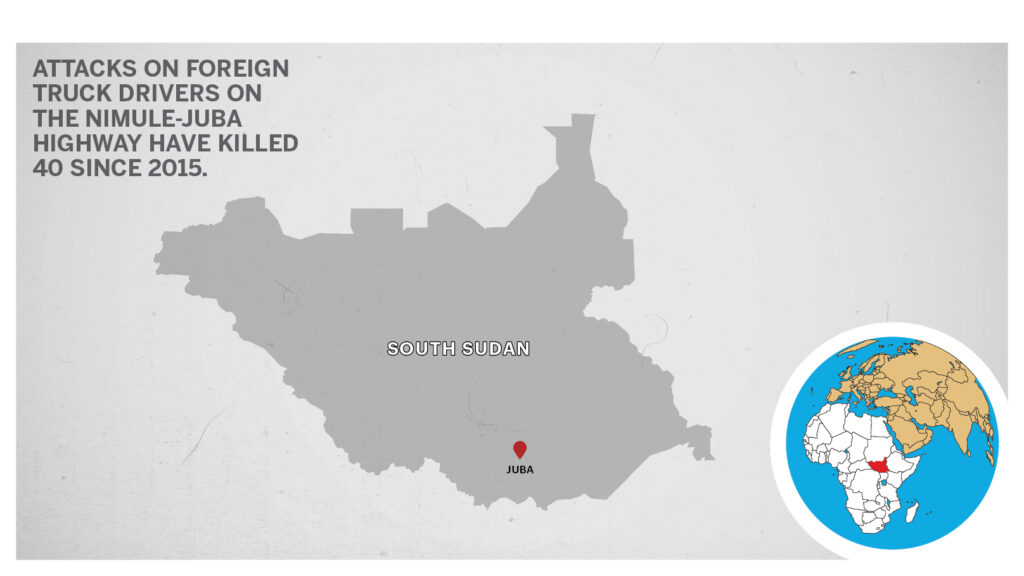
Dollis narrowly escaped death thanks to an intervention by the South Sudan military, but not before he had suffered a gunshot wound to his left leg and a broken left hand. The bullet is still lodged in his leg and requires an operation to remove it, he said.
“I drove into the ambush as I saw several trucks ahead of me go up in flames,” he said.
“Two gunmen suddenly appeared in front of my truck and shot at me through the windshield from the right-side. The bullets hit my right hand, shattering two of my fingers.”
He struggled to drive the truck for another 20 kilometers (12.4 miles) further when he saw an abandoned military truck parked by the roadside. On the verge of losing consciousness due to heavy bleeding, he parked his petroleum tanker next to the military truck.
“A passerby approached and advised me to get out the truck and run away because gunmen were looting and burning trucks. I begged the stranger to help me because I was wounded. He helped me disembark as two other gunmen advanced. One of them suggested that they finish me, but the other opposed the idea, and they left.”
Shortly, a van with South Sudan military personnel approached, administered first aid to him, and evacuated him to Nimule Hospital.
“My family learned of my attack three days later,” he said.
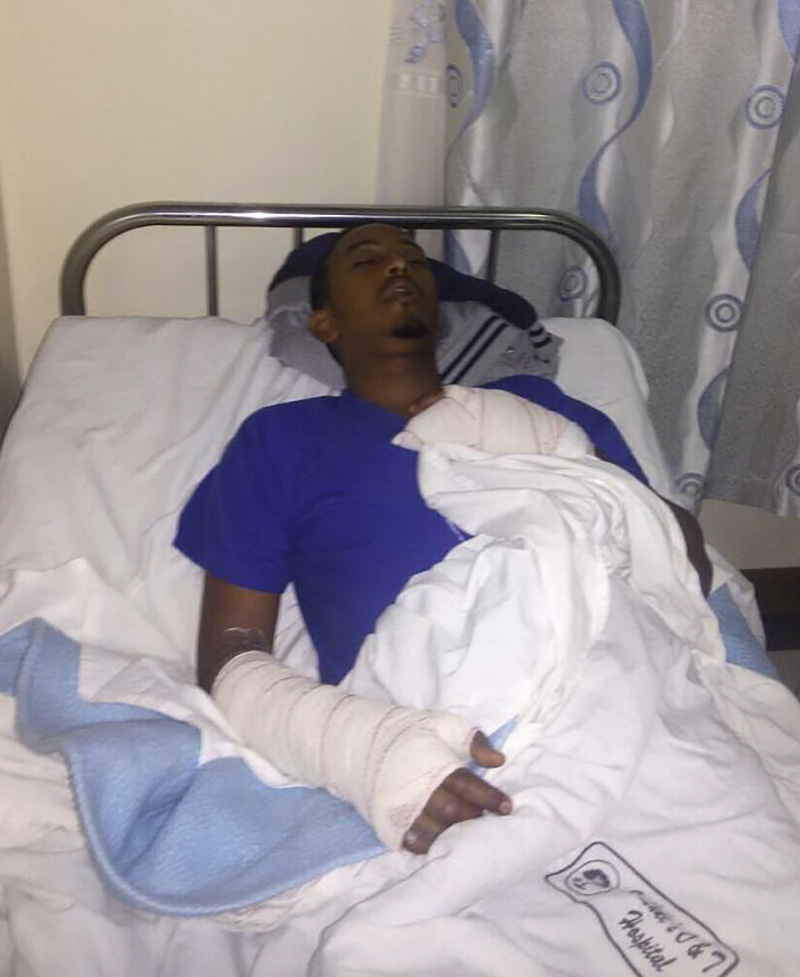
“They traveled from Kenya to South Sudan and transferred me to St. Mary’s Hospital Lacor in Gulu City, Uganda, where doctors had recommended that my right leg be amputated. My family rejected the idea and transferred to Eldoret,” a town 300 kilometers (186.4 miles) west of Kenya’s capital, Nairobi.
The incident was the most recent in a series of deadly attacks targeting foreign truck drivers in South Sudan, an issue threatening trade within the East African Community, which comprises six countries—Kenya, Uganda, Tanzania, Burundi, Rwanda, and South Sudan.
Unions representing truck drivers in Kenya and Uganda say 40 trucks have been torched between March 17 and April 2. More than a dozen drivers were burned to death while inside their vehicles on March 18 alone, according to the unions.
Male Zedi, the vice-chairperson of the Uganda Long Distance Truck and Heavy Trucks Association, said that South Sudan authorities handed over to their Ugandan counterparts 13 bodies at the Elegu border on March 30 and April 6.
“The bodies included 10 Ugandans, two Kenyans, and an Eritrean national,” he said.
The organizing secretary of the Kenya Long Distance Truck Drivers and Allied Workers Union, Sudi Mwatela, said the death toll could be higher.
“Our colleagues who witnessed the atrocity revealed that many bodies were burnt inside trucks beyond recognition, and they were buried in South Sudan,” said Mwatela.
Dollis was lucky to survive with his life, but his cousin Hashim Ismail, 36, was not as lucky. Survivors of the attack informed him that Hashim was burned to death inside his truck and hurriedly buried in South Sudan in observance of Islamic rites.
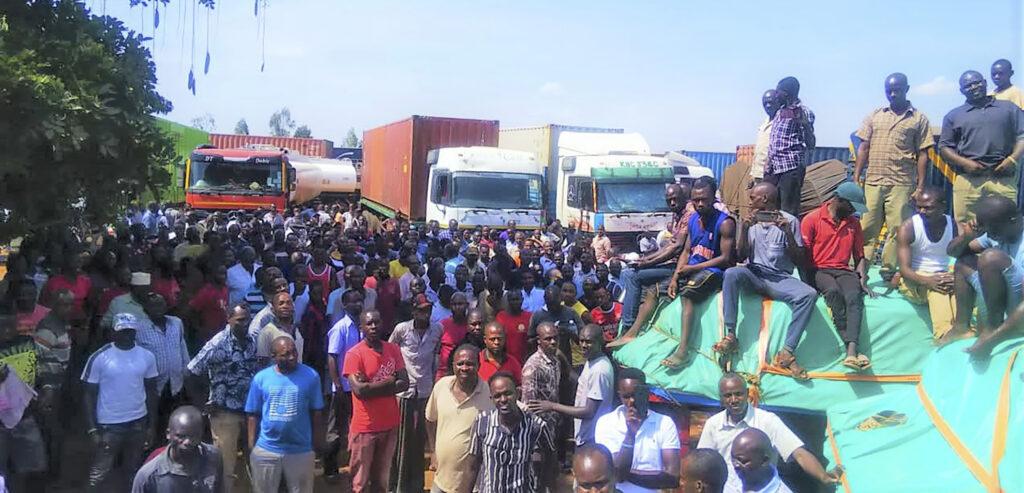
“He was our family’s main breadwinner, and my ailing mother entirely depended on him for medical treatment,” said Hashim’s younger brother, Amin Ismail.
Batula Hussein, the deceased’s mother, told Zenger News on the phone from her home in Mackinnon, near the Kenyan tourist town of Mombasa, she is yet to come to terms with her son’s death.
“I am so sad,” she said. “I am told he was burnt in his truck, and there was little of him remaining to be buried. It was his first time in that country [South Sudan].”
Dollis and Hashim had just landed jobs driving fuel tankers from the Port of Mombasa to countries within the East African region.
Many other drivers remain unaccounted for more than a month after the attacks.
The South Sudan Inspector General of Police, Majak Akech, blamed the increasing attacks on bandits allegedly affiliated to the National Salvation Front—the largest rebel group operating in the country’s Equatoria region where most of the attacks have been taking place.
Since March 2017, the National Salvation Front, under the leadership of Thomas Cirillo, a former general in the South Sudan military, has waged war against President Salva Kiir Mayardit.
“They declined to sign the Revitalized Agreement (Revitalized Agreement on the Resolution of the Conflict in South Sudan) brokered by the UN and other African governments on August 31, 2020,” said Akech.
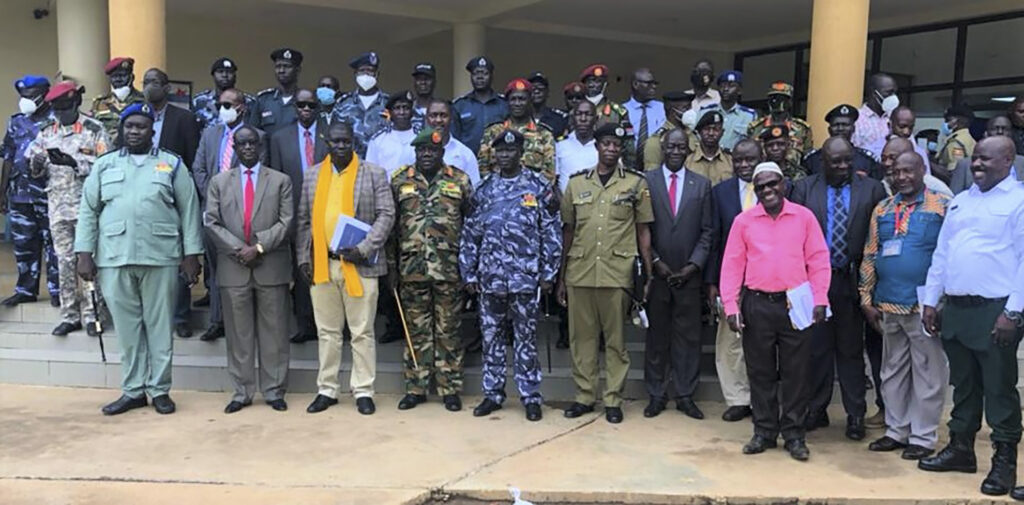
Security officials believe National Salvation Front’s attack on foreign trucks is to gain access to food supplies and other resources to support their continued rebellion against Juba. But National Salvation Front spokesperson Suba Samuel denied the accusation and said government forces are behind the deadly ambushes.
“With the rampant insecurity in South Sudan and the activities of the different armed groups, it is easy for anyone to apportion blame for the subversive activities of gunmen in the country,” said Samuel via phone last week.
“Certainly, it is not National Salvation Front that recently attacked the truckers destined for Juba. We don’t take responsibility for what we have not done.”
Samuel’s denial of the National Salvation Front’s responsibility can’t be brushed off. In the recent past, fingers have been pointed at South Sudan’s law enforcement in this violence and looting.
Following the attacks, foreign truck drivers staged a nine-day protest by parking their trucks in Uganda’s Elegu township, a major border point entry to South Sudan. Their action paralyzed transport and cut off the supply of goods to Africa’s youngest nation.
Later, the truckers issued a 90-day ultimatum to the East African Community heads of state to find lasting solutions to the constant ambushes. “We do not wish to continue to operate under such a hostile environment,” said Zedi.
Last week security officials from Uganda and South Sudan held a meeting to unlock the impasse.
“We asked South Sudan to get rid of checkpoints along the Nimule-Juba highway, especially along with Juba-Kaya-Oraba Highway, Lanya, Nesitu, and Juba Bridge areas,” said Geoffrey Oceng Osborn, a representative of the Ugandan government.
The checkpoints, he said, are sometimes operated by the police, South Sudan’s military, customs, and revenue officials, as well as shooters who carry out attacks on cargo fleets.
Following the crisis talks, South Sudan’s director-general of customs, Akol Ayii, disbanded the revenue checkpoints along Nimule-Juba Highway.
“We have already issued a stern warning to our officers against erecting unnecessary checkpoints along Juba Highway,” he said.
Nonetheless, the truckers now are demanding compensation for the lost lives of their colleagues. They have come up with a list of 40 names of their colleagues whom they allege were killed in similar ambushes as from 2015, which they have presented to the foreign ministries of Uganda and South Sudan for review within a period of three months.
(Edited by Kipchumba Some and Amrita Das. Map by Urvashi Makwana)
The post South Sudan’s Highway Of Death: Trucker Survives An Ambush Slaughter That Killed 13 appeared first on Zenger News.
